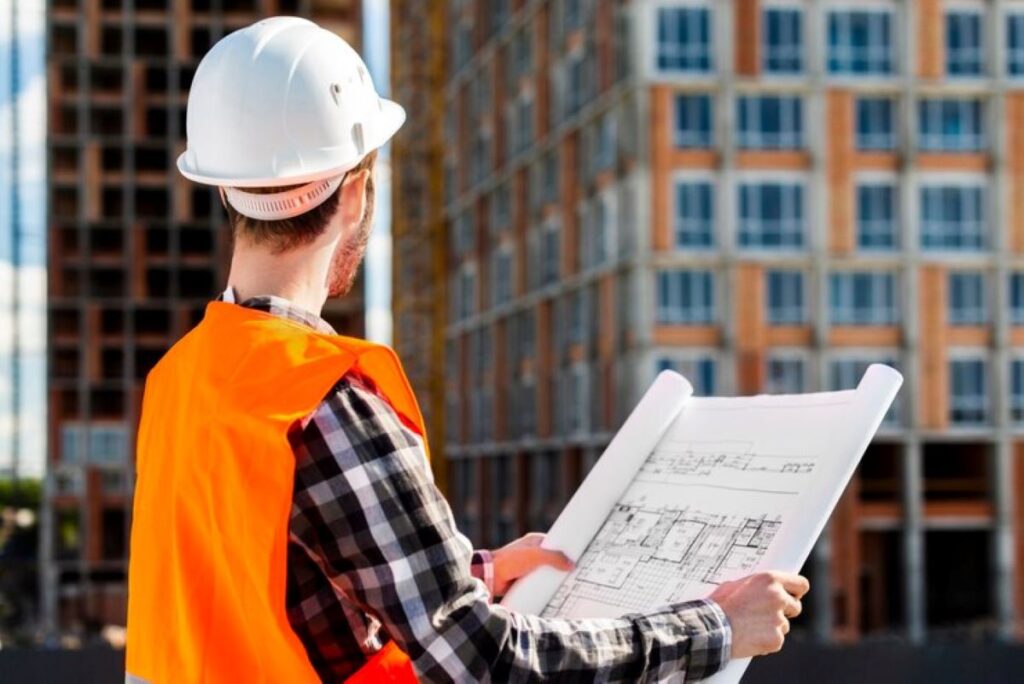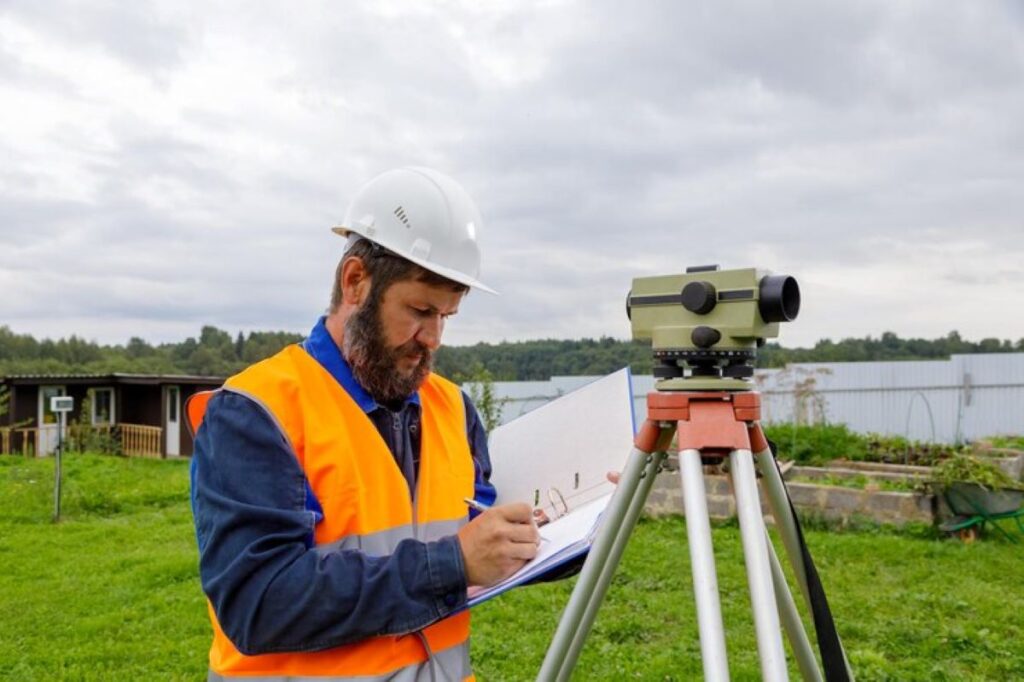In the realm of construction, precision and accuracy are paramount. A construction surveyor plays a crucial role in ensuring that projects run smoothly and adhere to regulations. However, many individuals and businesses underestimate the importance of hiring a professional surveyor, often leading to costly mistakes. This article outlines five common blunders that can be avoided by engaging a qualified construction surveyor.
1. Inaccurate Site Measurements
The Importance of Precision
One of the most fundamental tasks of a construction surveyor is to provide accurate site measurements. Inaccurate measurements can lead to significant errors in the construction process, resulting in structural issues and costly delays. A professional surveyor employs advanced technology and methodologies to ensure that every measurement is precise, which is vital for the integrity of the project. The use of tools such as total stations, GPS, and laser scanning has revolutionised the field, allowing for a level of accuracy that was previously unattainable. These technologies not only enhance precision but also improve efficiency, enabling surveyors to cover larger areas in shorter time frames.
Consequences of Inaccuracy
When measurements are off, the repercussions can be severe. For instance, if a foundation is laid incorrectly, it may not support the structure adequately, leading to potential safety hazards. Moreover, rectifying such mistakes can be expensive and time-consuming, often resulting in project overruns. By hiring a professional, these risks are substantially mitigated. Additionally, inaccurate site measurements can lead to complications with local regulations and building codes, as structures that do not conform to specified dimensions may face legal challenges. This not only adds to the financial burden but can also tarnish the reputation of the contractors involved, making it imperative to prioritise accuracy from the outset.
2. Non-Compliance with Regulations
Navigating Legal Requirements
Construction projects are subject to a myriad of regulations and standards, which can vary significantly depending on the location. A professional construction surveyor is well-versed in local laws and regulations, ensuring that all aspects of the project comply with the necessary legal requirements. This knowledge is crucial for avoiding fines and legal complications that can arise from non-compliance. Furthermore, these regulations often encompass environmental considerations, safety protocols, and zoning laws, which are all designed to protect the community and the environment. A thorough understanding of these elements allows surveyors to provide invaluable advice, helping clients navigate the complexities of the regulatory landscape.
Risk of Delays
Failure to adhere to regulations can lead to significant delays in project timelines. If a project is found to be non-compliant, authorities may halt construction until the issues are rectified. This not only prolongs the project but can also lead to increased costs. Engaging a professional surveyor helps ensure that all necessary permits and approvals are obtained from the outset, keeping the project on track. Additionally, the potential for reputational damage should not be overlooked; clients and stakeholders may lose confidence in a company that fails to meet regulatory standards. In a competitive market, maintaining a solid reputation for compliance can be as crucial as the quality of the work itself, influencing future project opportunities and partnerships.
3. Poorly Defined Boundaries
The Role of Boundary Surveys
Boundary disputes are a common issue in construction, often arising from poorly defined property lines. A professional construction surveyor conducts thorough boundary surveys to accurately determine the limits of a property. This process is essential for preventing disputes with neighbours and ensuring that the construction does not encroach on adjacent properties. The surveyor employs advanced technology, such as GPS and laser scanning, to create precise maps that delineate property lines, which can be crucial in densely populated areas where boundaries may be less clear. Furthermore, these surveys take into account historical land records and existing structures, providing a comprehensive overview that can be invaluable for both current and future property owners.

Preventing Future Conflicts
By clearly establishing boundaries, a professional surveyor helps to prevent potential conflicts that could arise during or after the construction process. This not only saves time and money but also fosters good relationships with neighbours. In the long run, investing in a boundary survey can save considerable hassle and legal fees. Additionally, having well-defined boundaries can enhance property value, as prospective buyers are often wary of properties with ambiguous lines. A clear understanding of where one property ends and another begins can also facilitate future developments or renovations, as homeowners can confidently plan their projects without fear of infringing on someone else’s land. Moreover, in the event of a dispute, having a professionally conducted boundary survey can serve as a critical piece of evidence, providing clarity and support in legal proceedings, should they arise.
4. Inadequate Site Analysis
Understanding Site Conditions
A comprehensive site analysis is crucial for the success of any construction project. This includes evaluating soil conditions, topography, and environmental factors that may affect the construction. A professional construction surveyor conducts detailed assessments to identify potential challenges early in the process, allowing for informed decision-making. Moreover, understanding the historical context of the site can provide insights into previous land use, which may influence current construction practices. For instance, if the site was previously used for industrial purposes, there may be contamination issues that need to be addressed before any building can commence. Such thorough investigations not only safeguard the integrity of the project but also ensure compliance with local regulations and environmental standards.
Mitigating Risks
Inadequate site analysis can lead to unforeseen issues during construction, such as soil instability or drainage problems. These complications can result in costly modifications and delays. By hiring a professional surveyor, potential risks are identified and addressed proactively, ensuring a smoother construction process. Additionally, a thorough site analysis can uncover opportunities for optimising the design and construction methods. For example, understanding the natural drainage patterns can inform the placement of structures and landscaping, potentially reducing the need for extensive drainage systems. Furthermore, a well-conducted site analysis can enhance the sustainability of the project, allowing for the integration of eco-friendly practices that align with modern construction standards and community expectations.
5. Insufficient Project Planning
The Importance of Strategic Planning
Effective project planning is essential for the successful execution of any construction project. A professional construction surveyor contributes valuable insights during the planning phase, helping to create a realistic timeline and budget. Their expertise ensures that all necessary factors are considered, leading to a well-structured project plan. This phase is crucial as it lays the groundwork for every subsequent step, from site selection to the final touches on the build. By meticulously analysing potential risks and challenges, the surveyor can recommend strategies to mitigate them, thereby safeguarding the project’s integrity and financial viability.

Optimising Resources
Without proper planning, resources can be misallocated, leading to inefficiencies and increased costs. A professional surveyor helps optimise the use of materials and labour, ensuring that the project stays within budget and on schedule. This strategic approach not only enhances productivity but also contributes to the overall success of the project. Furthermore, effective resource management can lead to sustainable practices, minimising waste and reducing the environmental impact of construction activities. By implementing innovative techniques and leveraging technology, such as Building Information Modelling (BIM), surveyors can provide a comprehensive overview of the project, allowing for better-informed decisions that align with both budgetary constraints and ecological considerations.
Conclusion
Hiring a professional construction surveyor is an investment that pays off in numerous ways. From ensuring accurate measurements to navigating complex regulations, their expertise helps avoid common mistakes that can derail a project. By engaging a qualified surveyor, individuals and businesses can save time, reduce costs, and ultimately achieve a successful construction outcome.
In summary, the benefits of hiring a professional construction surveyor far outweigh the initial costs. Their knowledge and experience are invaluable in avoiding the pitfalls that often plague construction projects. For anyone considering a construction project, enlisting the services of a professional surveyor is a wise decision that can lead to a smoother, more efficient process.
More to Read : The Importance of a Construction Survey in Large-Scale Developments